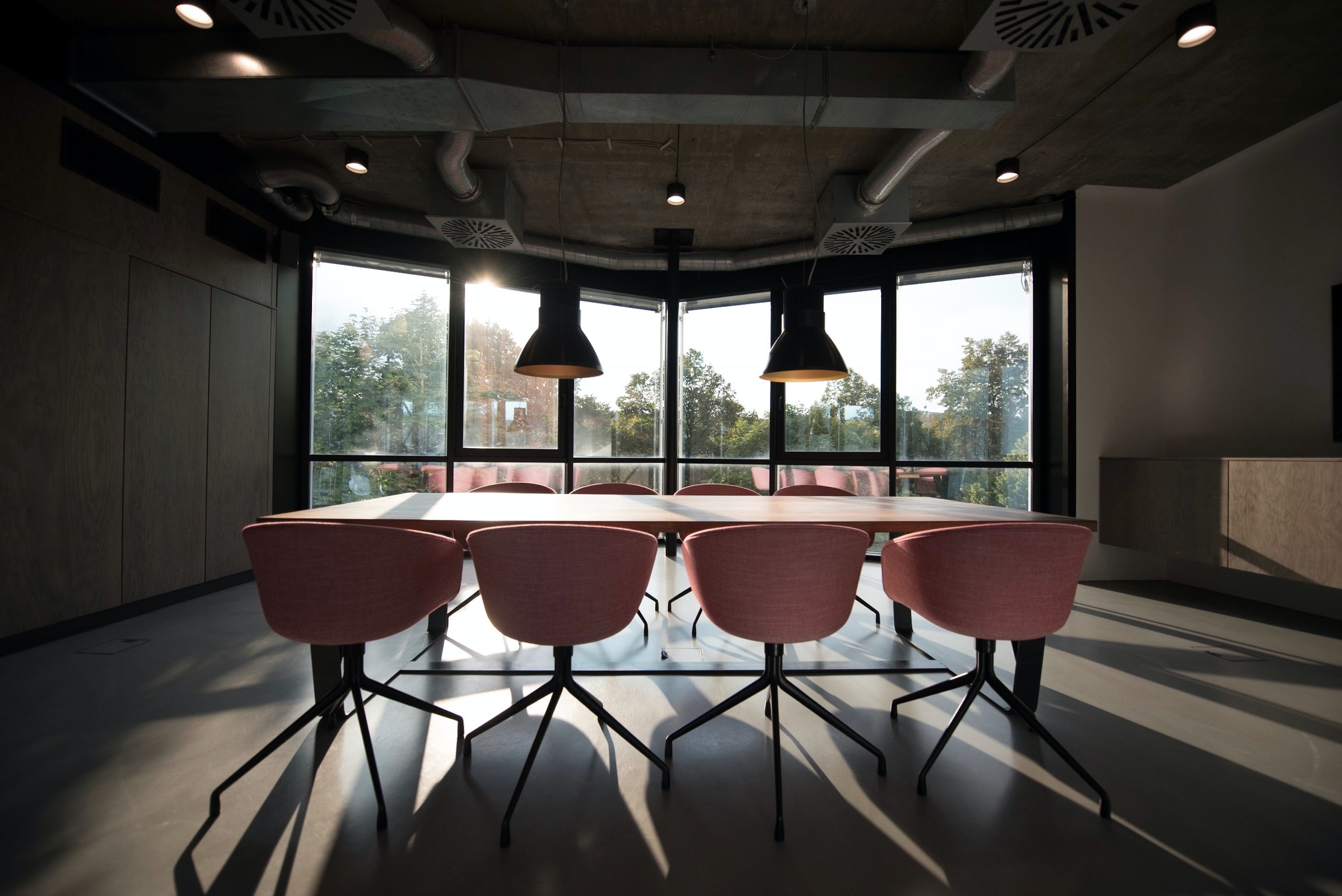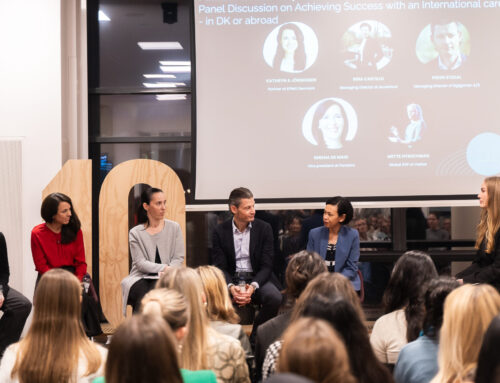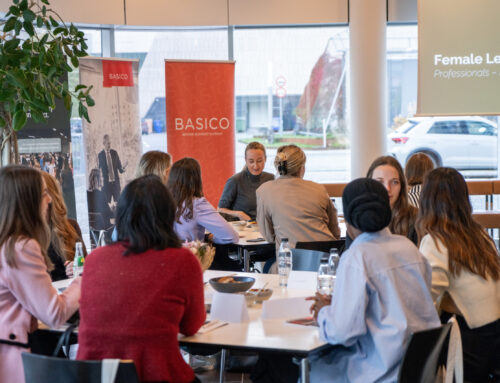Because you are a woman…
Through the last 150 years (and probably also long before that) women in Denmark have fought for their rights. The right to vote. The right to universities and education. The right to their own paycheck and so many other things. And the reason why women have had to fight so hard for these (basic) rights is simply because they are women.

In 1875 women in Denmark got access to universities, in 1915 they got the right to vote, in 1976 Denmark got The Equal Pay Legislation, and in 1978 came the first section of the law that protects women from dismissal due to pregnancy. These are just a few of the important legislative changes that have made it possible for Danish women to enter the job market and to have the same opportunities as men to get promoted, get a pay raise and start a family while still working - on paper.
Because how do the statistics look like when it comes to gender equality in Denmark? There are many different numbers and reports to draw on, but a frequently used one is the World Economic Forum’s Global Gender Gap Report 2020. In this report, all the countries in the world are compared to each other and ranked according to their gender equality scores in multiple areas. Overall Denmark scores a ranking of the 14th most gender-equal country in the world - far behind our Nordic neighbor countries. And when we look further into the scores, it becomes even clearer why Denmark is lacking behind. When it comes to the number of women in top positions like legislators, senior officials, and managers, Denmarks has a 102. place, and when it comes to equal pay for equal work, Denmark has a 52. place in the world. Clearly, we aren’t as equal in Denmark, as we want our legislation to reflect.
The statement that it is because they are women, is not just something we’re making up. Actually, DR (Danish Broadcasting Corporation) has recently made a whole series of six episodes, where they focus on areas, where Danish women throughout history have fought for their rights. The covered areas are politics, comedy, women’s right to their own body, sports, art, and finally the executive- and board levels. In all six episodes, interesting perspectives are being brought up and admirable women are sharing their stories, but particularly the last episode that focuses on women in top positions is of our interest.
The purpose of Female Leadership Academy is to inform, educate, and connect career-minded young professionals, so we can get more women in top management positions. The episode was therefore very interesting to us because we got a chance to hear all the cool women, who have fought for some of the rights that we have today and that we keep fighting for.
In the episode, we meet among other prominent career women former Group CEO at Tryg, Stine Bosse, who is now a professional board member. We meet Nana Bule, the CEO of Microsoft Denmark, and we meet professional board member, Lisbeth Knudsen, who is the former CEO and Editor in Chief at Berlingske and News Director at DR. Each of them shares their personal stories from their time in the Danish business world, and the thing that they have in common is that their experiences haven’t always been good and that they have felt that they have been discriminated against several times because they are women.
A situation where Stine Bosse clearly felt these frustrations were when the Danish insurance company Tryg, which she was the Group CEO of, was to be listed on the stock exchange. Like many other executive boards, Stine Bosse and her fellow directors had to go out and sell the listing, so that people would buy the stocks. Stine Bosse traveled with the CFO at Tryg, Morten Hübbe, around the world, and in 9 out of 10 times potential investors turned to her CFO instead of her, she tells in the episode. The potential investors didn’t expect her to be the boss but instead thought that she was the CFO’s assistant.
Another subject that is brought up in the episode, is the stereotypes that women are facing when it comes to starting their own family while working, with which Nana Bule shares her experiences. If you are a woman, who has chosen to aim for the top management positions, then you must be a “cold-hearted career woman”, who doesn’t want to have a family, because how are you going to take care of the family back home, while also fulfilling your responsibilities at work? The two things don’t seem compatible. But why? Maybe the problem isn’t as simple and the explanation shall be found in those gender role patterns that are so deeply rooted in us. Gender role patterns that see the woman as the caregiver and the man as the provider in the family.
When women make it to top management positions, the fight is not over yet. And in the episode, Lisbeth Knudsen tells us the following: “You notice very quickly that if you as a woman open your mouth in such an assembly, everyone’s eyes are fixed on you. And if you fail, you fail hard. Therefore, I felt that I should be 10 times more prepared for the meetings than the men needed to be.” Even though we now see women in top management positions, there is still skepticism around their skills, and whether they can handle their job. They have made it to the top, but we as a society are still not convinced yet, whether they are worthy of their job.
The last thing that we’re going to touch upon is women in board levels in Denmark - or the absence of them so to speak. The proportion of women in top positions within private companies in Denmark has remained largely unchanged for many years now. According to numbers from Statistics Denmark, 18% of Danish women were directors or board members in 2014. In 2019 the number has only increased to 19%. A lot of the reasons for that can be found in the way new board members are hired because job vacancies are rarely made for board positions. Actually, it is only 4% of all board positions, which is publicly advertised in Denmark. When acquiring new board members, the already seated board does the search. And we know from a lot of research on unconscious biases that when you’re looking for people to work with, you find people who look and act like yourself because that’s just the most comfortable. It is not something you do on purpose, but it is deeply rooted in our cognitive understanding.
A lot of the debate in the episode consists of what we should do about these problems that women, who want to have a director or board member position or already have it, are facing in the Danish business world. And here we believe that a quote from Stine Bosse sums it up pretty well.
"You should not help other women, just because they are women. But what you instead should do, if you get a position where you have the opportunity to actually hire women - and break some of those norms - then you have to do it. Then you have a special obligation. I must at least make sure that I get to look for both the male and the female talents”.







